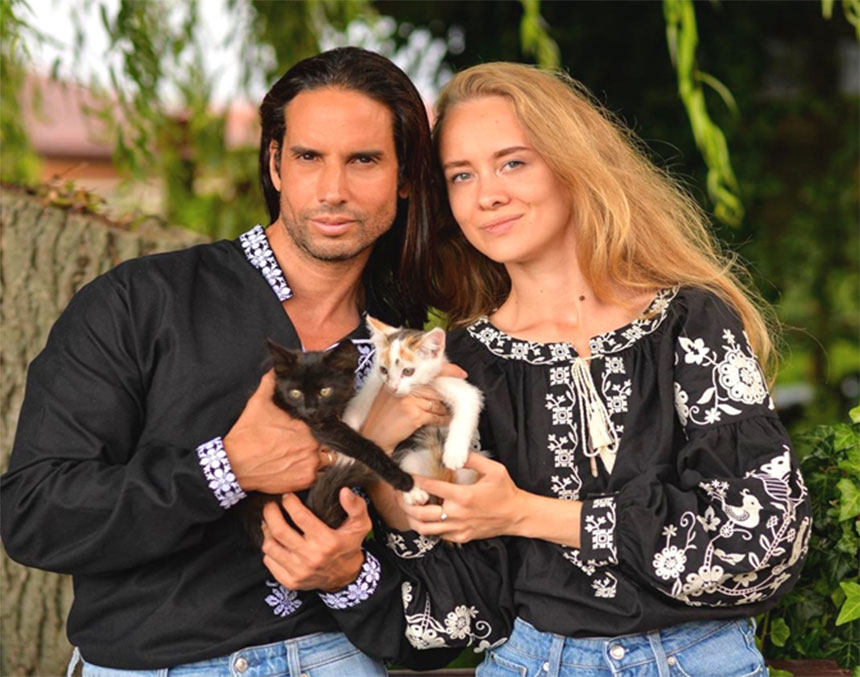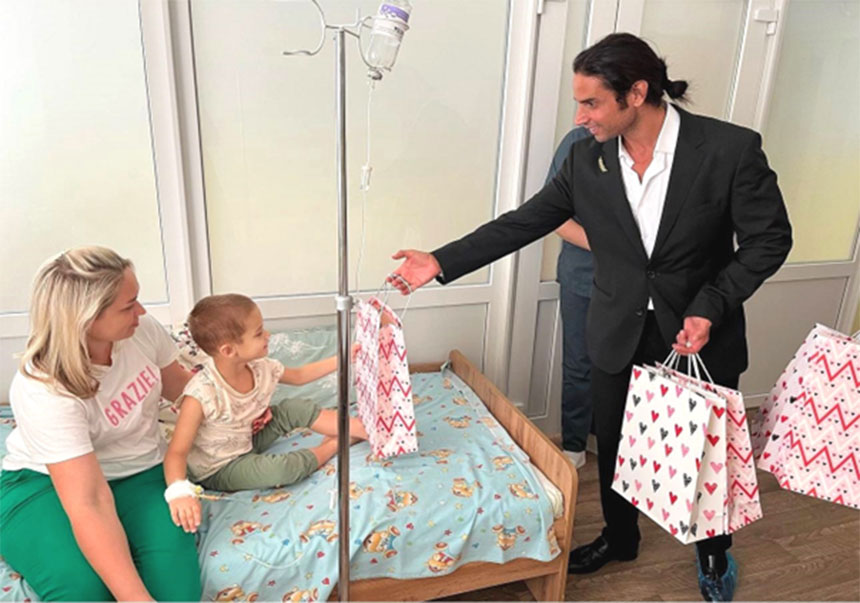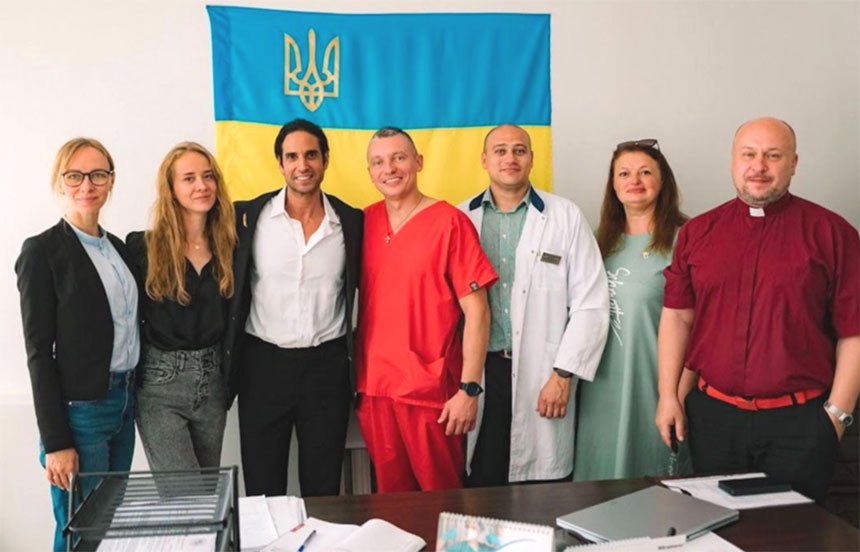Hearing with the heart: hard-of-hearing Israelis and Ukrainians help each other during the war
"I support Ukraine in its war because it has always sought independence, development, and integration into the Western world. Fascist Russia is waging an aggressive war against Ukraine. Israel and Ukraine are completely identical in their struggle against enemy forces," says Erez Drezner.
Erez Drezner, 46, is an Israeli celebrity, star of the Big Brother TV show, model, and fitness coach. In February 2024, he left behind the glamour and gloss and got on a train to Ukraine, a country that had been at war for two years and was suffering from brutal Russian missile strikes.
He came at the invitation of Iryna Chepchyna, head of the Ukrainian Society of the Deaf. He gave sign language lectures to Ukrainian people with hearing impairments in Rivne, Lviv, and Kyiv. "In my lectures, I talked about Israel's just war against terrorists in the Gaza Strip after the brutal Hamas attack and the mass murder of Israelis on 7 October 2023. I sincerely wanted to improve the image of Israel among Ukrainians and show them that our countries were similar in their fight for freedom. I hope I succeeded," says Erez.
"I definitely see many commonalities between Israel and Ukraine: Zionism as love for one's land, respect for the army, and deep patriotism. To my surprise, I have discovered that Ukrainians are very kind-hearted, warm, and hospitable people, and these qualities add to the inner strength of this nation," Erez notes.
His first trip to Ukraine had a romantic sequel: Erez met Oleksandra, a photographer and designer, at one of his presentations. Erez came to Ukraine for the second time in July 2024 because of her and stayed for several months. They got married in Lviv.
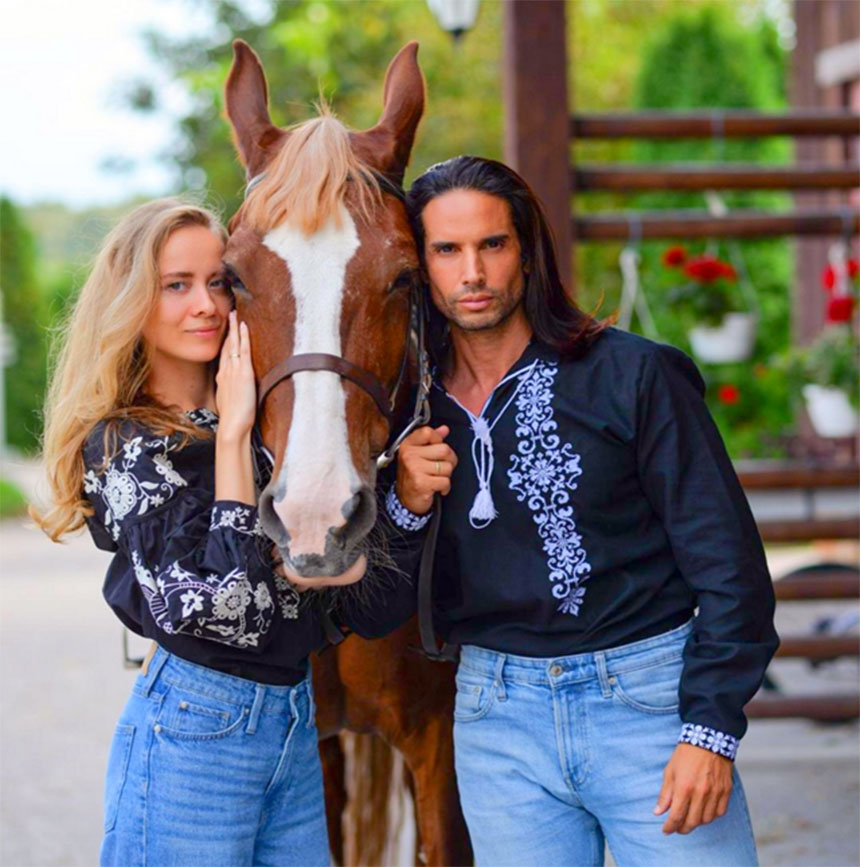
The Rivne city TV channel has even produced a video about their romantic story. It references an interesting fact: Oleksandra's father, a Ukrainian officer and teacher from Ostroh, was a close friend of the head of the city's Jewish community, Hryhorii Arshinov, and helped him restore the Great Synagogue of Ostroh.
Erez Drezner learned a lot about Ukraine and its culture: "Whenever you go to a café, restaurant, or any other place with a woman, it is customary to open the door for her and let her in first, like a gentleman. Moreover, it is customary to help a woman remove her coat and hang it on a hanger. It is an elegant gesture reminiscent of the style of the 1950s. It made a great impression on me."
"I mastered the art of drinking alcohol, accompanied by speeches at a festive table. It is an interesting social tradition. I also learned to hang washed clothes on clotheslines rather than using dryers, which are not very common in Ukraine. For me, it was a fascinating experience emphasizing the unique hybridization of the Soviet style and modernity in local culture," Erez continues, recounting his immersion in Ukrainian realities.
While in Ukraine, Erez Drezner visited a children's cancer hospital in Rivne with gifts and spoke to wounded Ukrainian soldiers in a hospital in Zdolbuniv.
"Erez served as a medic and pharmacist in the Israeli army even though he couldn't hear; instead, he lip-read and used sign language. He visited Ukrainian soldiers undergoing treatment at our institution, wishing them a speedy recovery, thanking them for their hard fighting, and expressing his sincere support. Erez was most interested in the needs of the regional center for combat trauma and bone and purulent surgery. He shared his desire to help raise funds to purchase equipment for the operating room," notes the Zdolbuniv town council website.
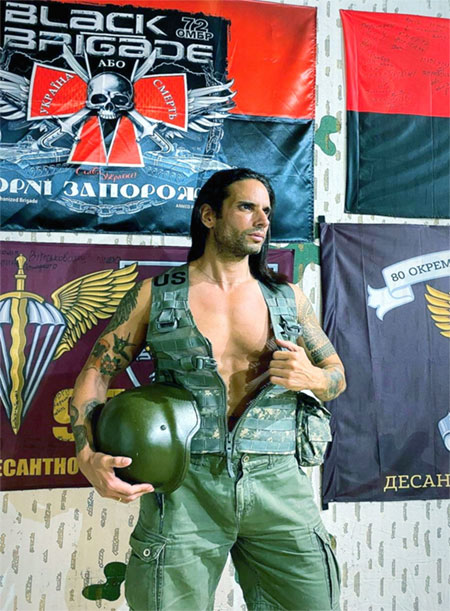
Erez's grandfather, Oskar Drezner, was a watchmaker in Krakow. He fled from Nazi persecution to the USSR in 1940 but was repressed by Stalin's penal system. Oskar spent several years in hard labor in the Gulag camps, as did his future wife, Bluma. After the war, he returned to Poland and later moved to Haifa with his wife. The Oskar watch and jewelry store he opened there is still a Drezner family business. Erez's older brother, Tomer Drezner, is one of only two hard-of-hearing lawyers practicing in Israel.
Accessibility without borders
I learned about Erez Drezner and his relationship with Ukraine and Ukrainians from my cousin Lev Briman, an activist in the Israeli deaf community and head of the NGO "Accessibility Without Borders." Lev organizes sports events for hard-of-hearing Israelis and is also a talented artist and video maker. His mosaic panels featuring ancient Jerusalem themes decorate the Cardo, an ancient street in the Old City of the Israeli capital.
"After Russia's war against Ukraine broke out, thousands upon thousands of Ukrainian refugees came to Israel. Several hundred of them were hard of hearing. There are 60 deaf refugees from Ukraine in Bat Yam alone. They have a particularly hard time in their new country. Many fled the war without documents, or their passports expired," Lev Briman explains. As a certified sign language interpreter, he tries to help these people by accompanying them to Israeli agencies and helping them resolve consular issues through the Ukrainian embassy in Israel. "If the Ukrainian embassy's website had a chat option, it would make it easier for hard-of-hearing people to communicate with Ukrainian diplomats," says Lev.
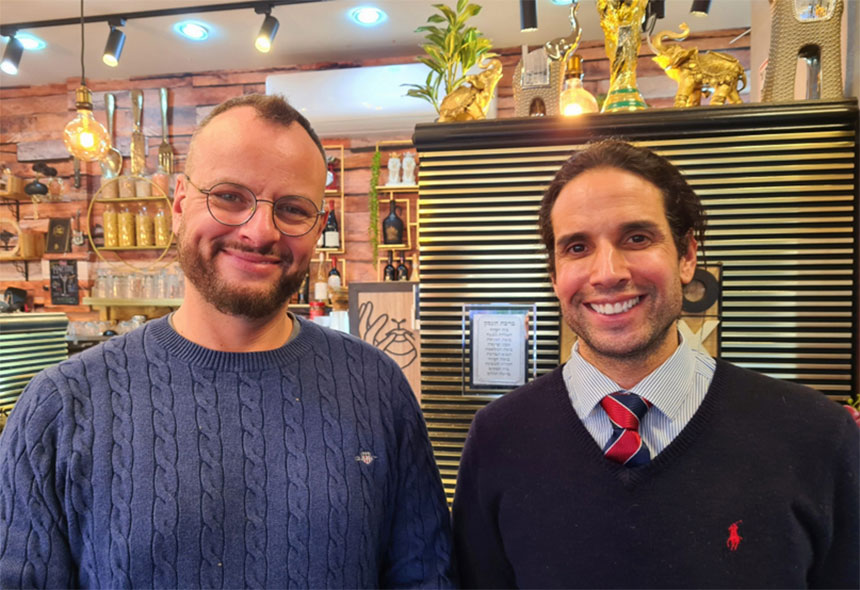
In December 2024, acting on behalf of the NGO "Accessibility Without Borders," Lev and Erez asked the Israeli Ambassador to Ukraine, Michael Brodsky, to support an art initiative for hard-of-hearing Israelis and Ukrainians. The "Hearing with the Heart" project will include a joint exhibition of paintings and other artworks created by these people that will be mounted in Ukraine and Israel. The goal is to show how they experience and view the war and long for a peaceful life and love, as well as how the language of painting and art unites the peoples of Israel and Ukraine. Some artworks will be sold in Israel at a charity auction, with the proceeds going to a children's hospital in Ukraine. Brodsky supported the idea, and the details are now being worked out between him, Erez Drezner, and Lev Briman.
In place of a finale
When God told the biblical King Solomon he could ask for any gift, the latter asked for "a hearing heart" to discern between good and evil. The Almighty replied: "I have done according to your word and given you a wise heart." These lines make it clear that "a hearing heart" and "a wise heart" are the same thing because they speak of the same human quality, i.e., the ability to distinguish between good and evil.
You can hear not only with your ears but also with your heart. When Israel and Ukraine opted for a partnership between states and people, our nations made the right and wise choice, jointly choosing good over evil.
Text: Shimon Briman (Israel).
Photos: Erez Drezner's private archive.







